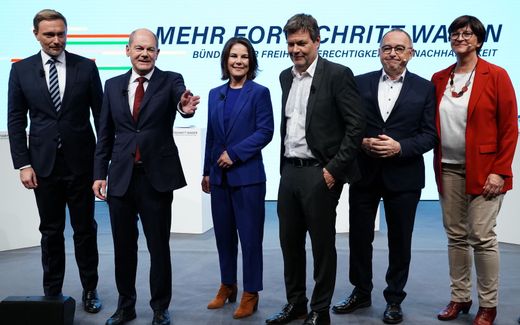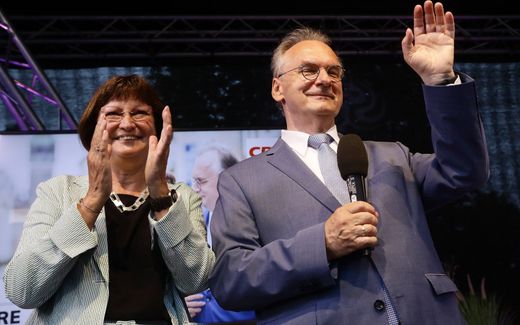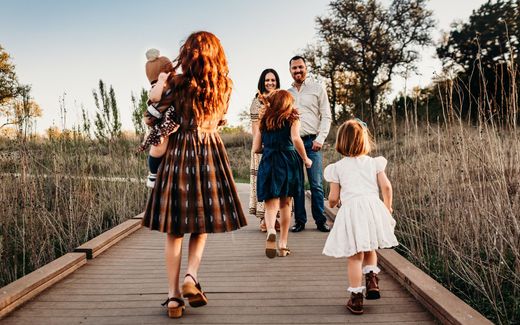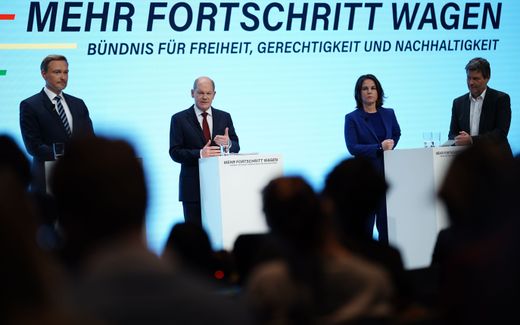“German coalition has new concept of family”
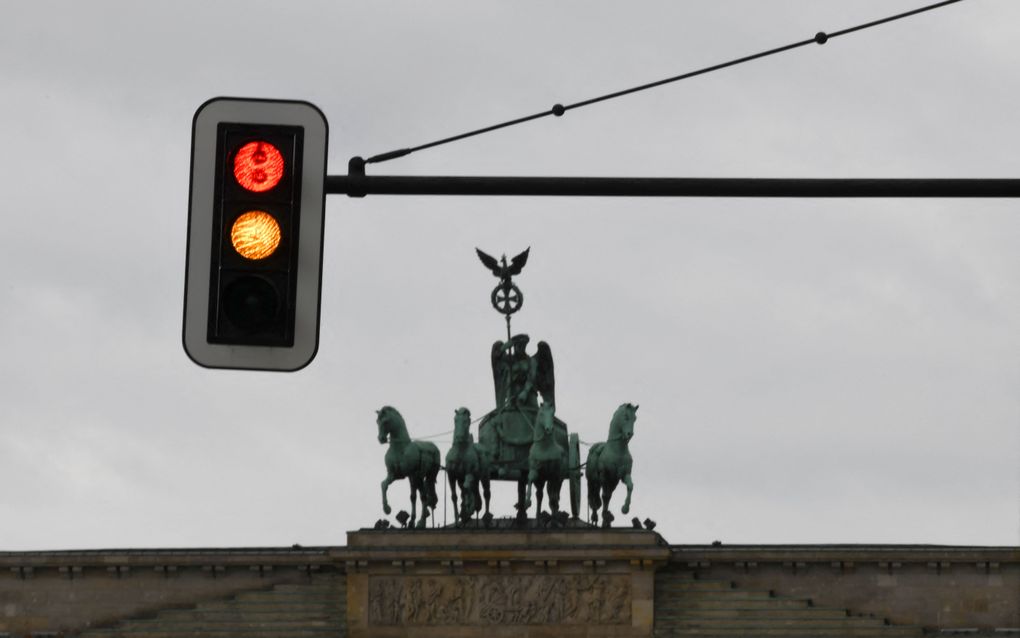
The new Traffic Light government will be sworn-in in Germany this week. Photo AFP, Ina Fassbender
Central Europe
The German government that will be sworn in this week chooses against the natural family of father, mother, and child(ren). That is the firm statement made by the editors of the Catholic magazine Die Tagespost.
The so-called Traffic Light coalition will be the first government in 16 years without the Christian Democratic CDU/CSU Union. Merkel’s party was conservative. That means no frontrunner in social change. But on the other hand, many Union politicians voted in favour of same-sex marriage in 2017. But now the Christian Democrats leave the government, the difference in direction is visible.
Shortly after the program presentation of the Traffic Light coalition on November 24th, the magazine gave a first impression. The family concept in the agreement “differs fundamentally” from the natural family, according to the editors. “Rainbow families should be anchored more explicitly in family policy.”
To promote diversity, all relationships in which children are born are considered families. For instance, if a baby comes to the world in a relationship of two women, those will be automatically seen as “legal mothers”. The magazine notices that “the biological parents of a child are nowhere mentioned”.
The same with adoption: “Marriage should no longer be a decisive criterion for the adoption of underage children. Unintentionally childless couples and individuals should be supported “regardless of medical indication, marital status and sexual identity” by assuming the costs of artificial insemination.”
What Christians need to know
Last week, in the run-up to the swearing-in of the government, no less than nine editors of the newspaper made an overview of “the agenda of the Traffic Light government”. One of the headlines above the article says: What Christians need to know about the coalition agreement.

Starting with the definition of the family again, the journalists sum up that “in the future, up to four “social” parents should also be able to be “legal” parents of a child.”
In this context, it is “only logical” that children’s rights get a more solid place in the German constitution. “In this new concept of family, the child becomes the subject of adult negotiations or, alternatively, a weaker negotiating partner. Therefore, the child should be given the opportunity to “complain” in order to be able to claim his rights against his “social” and/or “legal” parents – biological parents are not mentioned in the paper.”
Not only families are part of this policy, but schools are also connected to this because “the text demands that acceptance and protection of sexual and gender diversity includes appropriate education in schools and youth work.”
So much attention of 0.15 per cent of families
At the EU level, too, the coalition will in the future advocate recognition of the image of marriage and family diversity in all member states. But in fact, the editors of Die Tagespost do not understand that “rainbow families” get so much weight in the policy. “According to the Family Report 2020 by the Federal Family Ministry, there are over 6.5 million families in Germany with a father and a mother (the majority of whom are married), but only 10,000 “rainbow families”. The ideological concentration on this 0.15 per cent of families endangers the natural right of parents to care for and bring up their children, as enshrined in the constitution. It ignores the everyday needs of many families. It is true that the coalition agreement also provides some relief, such as increasing the number of children’s sick days for working parents. But suppose you are looking for long-term measures that benefit all families. In that case, you will be disappointed”, states Franziska Harter of Die Tagespost.
The paper refers to the Social Democratic lawyer and judge Ernst-Wolfgang Böckenförde (1930-2019), who said: “The liberal, secularised state lives on conditions that it cannot guarantee itself.” Böckenförde recognised that both churches and ideological groups bring social capital to the secular state.
In other words: the secular state does not preach values but must live with the values of the citizens. “Because values are something like a motor for their commitment to the common good.”
In a certain way, the coalition agreement appreciates the work of churches since they make a “valuable contribution” to society. But Die Tagespost asks: “How much free space are you willing to give for this? You can only have a social impact with suitable staff. The program now says that they want to examine together with the churches how the church labour law can be adapted to the state. Preaching-related tasks should be excluded from it. Nevertheless: the scope could become smaller.”
Another passage is “really alarming”, the editors say. “The participation and representation of Muslim communities should be improved. Newer, progressive communities based in Germany should be involved. That sounds sensible given the dangers threatening political Islamism. But how does the state want to define what is considered progressive in religion, and why can it prefer such groups? Couldn’t even what is now supposed to apply to Muslims also apply to Catholics?” asks Sebastian Sasse.
Toxic cocktail
The magazine adds that the paragraphs on “reproductive self-determination” are no less than a “toxic cocktail”. This has to do with the end of the advertising ban for abortion and the legal measures against life rights activists in the vicinity of abortion clinics. The toxic cocktail is also applicable for “health care” for women, which is no less than “prenatal infanticide”. The magazine wants to know what weight the coalition gives to the “right of life” in the German constitution.
Regarding artificial insemination, the new coalition won’t look any longer to marital status or sexual orientation but becomes “non-discriminatory.” The magazine concludes: “Similar to France, lesbians and single women in Germany will soon be helped to have children using foreign sperm donation (heterologous insemination) and artificial insemination. At the expense of the taxpayer and the solidarity community of the health insured.”
The editor Stefan Rehder concludes: “If you mix the colours red, yellow and green, you get a shade of brown. Anyone looking for a name for the poison mixture, which results from adding the ingredients of this chapter of the Traffic Light contract, would probably not be completely wrong with “Brown Devil”.”

Religious freedom
Less antithetical is the paper towards the foreign policy of the new coalition. The magazine values that the new government thinks “more globally” and tries to “strengthen a value-based international system through a value-based and interest-based German foreign policy.”
The Catholic Magazine is concerned about religious freedom in foreign policy. This was very important in the so-called present Grand Coalition under Angela Merkel due to the Christian Democratic CDU/CSU party. But there is one point of hope, Die Tagespost ends with. “Some MPs (from the Traffic Light parties, ed.) are also explicitly for freedom of religion. Supporting them remains the challenge”, says the journalist Otmar Oehring.
Related Articles


